|
At my first Temple Shalom Board meeting about 5 years ago, the congregation had been through difficult times. Burst pipes had flooded the building and the loss of a beloved rabbi accelerated years of attrition. At that meeting, someone said the only and obvious option was to dissolve the congregation and sell the building. No, not today, I thought. This sacred place of love, friendships, and families won't end with a dangling For Sale sign.
And here we are today. Due to the dedication of our old members, and the vision of our new members, our congregation is not just surviving - it is growing, evolving, and deepening our connection to each other and to G-d. We are delighted to be led in worship by Rabbi Kripper, who along with Cantor Scheff, and Daniel Berkman, each in his own way, show us a connection to Judaism that is grounded in love, compassion, and vulnerability. Our Board of Directors reflects our history and our future. We are humbled by the decades of service that built and sustained the congregation and members old and new who are eager to take this place of covenant and community into the future. This year, we’ve joined with Congregation Jeshuat Israel to establish Kulanu: The United Hebrew School. In Hebrew, Kulanu means “all of us,” perfect for our unified, inclusive community. I am deeply grateful for our committed and energized school board members and faculty who are strengthening Jewish identity and joy in our children. At Temple Shalom we learn and play, celebrate and mourn, and socialize and worship together. We are a community that acknowledges that we are sacred; a place for the care and feeding of our spirits; a community that facilitates our spiritual practice and deepens our sense of perspective, meaning, and purpose. This is the essence of Judaism - our purpose is to make G-d’s presence felt through the creation of community. This congregation has shown the grit and resilience that our people, the Jewish people, have embodied for 3,000 years. With your support, this Temple will rise. On behalf of Ethan, our children Ben, Toby, and Sam, and the Board of Directors, we hope everyone had an enjoyable and meaningful holiday season. We look forward to many future celebrations with you. I’ve been captivated ever since NASA released the first images from the James Webb Space Telescope. It is beyond the ability of my mind to comprehend the scale of time and space captured in the breathtaking pictures of galaxies as they looked 13.1 billion years ago. As astronomers explain, every dot in the image is a galaxy: “For a sense of scale, if you could hold a grain of sand at arm’s length up to the sky, that speck is the size of the view. It is one minuscule sliver of our universe, filled with thousands of galaxies, each with billions or trillions of star systems in each of those with its own planets.” I am awestruck at this primordial light carried through billions of years of creation.
My coworker is a geophysicist, accustomed to geologic time and the invisible forces of our universe. I sit in his office and nihilistically bemoan - We are so small and our time here is so short, what difference do we make? We’re nothing! He gently redirects: We are small, but this is everything so we must give it all we’ve got. His response echoes the midrash of the Chasidic rebbe who believes an individual should keep two slips of paper in either pocket. In one pocket, the slip of paper says, “I am but dust and ashes;” the other, “The universe was created just for me.” As we approach Rosh Hashanah, the day the world was created, the photos from the Webb Telescope will be my shofar. Let these images of divine creation shake us from our complacency, reminding us that being is unbelievable. This new look at our spectacular and mysterious universe should inspire us to take nothing for granted. “Everything is phenomenal; everything is incredible; never treat life casually,” says Rabbi Abraham Joshua Heschel. During these Days of Awe, join me in renewing our commitment to honor the miracle of creation by living lives of wonder and humility. Shana tova! Abigail Anthony I typically spend Friday night shushing my young sons and growling at them to sit still during the Shabbat service. Rabbi Mandel recently invited the students to a Friday night service at Touro Synagogue, and I brought my boys. The Rabbi encouraged the children to join him on the bima and I took a seat in the balcony, unable to scold, prod, or shush. I watched the boys imitate the Rabbi, fully engaging their bodies in the movement and ritual of the service. They arranged and rearranged their oversized tallit on their small shoulders. Siddurs propped on the bima, they trailed their fingers along the Hebrew lines, shuckling rhythmically. Even though Rabbi Mandel’s service was predominantly in Hebrew and not edited for children, my boys weren’t bored or fidgeting. Lacking self-consciousness, the boys allowed themselves to feel the beauty of the prayer and the community’s care through the movement of their bodies.
Why don’t more of us shuckle or wear tallit during prayer? Probably because, like me, you’re embarrassed. I’ll look silly! Everyone will see that I don’t know what I’m doing! Like you, I complain that services are uninspiring, but my self- consciousness keeps me from feeling the love and caring that the moment offers. If we want deeper connections and more meaningful spiritual lives, we need the open hearts and vulnerability that we had as children. I relearned vulnerability in the most unlikely setting - the office. On my first day I asked a staff member how to succeed and she replied simply, “trust us.” I trust colleagues with my fears and insecurities and have been met with the deepest caring. They’ve taught me the radical kindness of making a person feel seen, heard, and valued - the preconditions for growth. They've shown me that vulnerability is the birthplace of belonging and courage, creativity and accountability. At its best, being vulnerable creates a safe space for others to grow. Temple Shalom facilitates our connection to each other and G-d. The music and rituals of the worship service are designed to elicit our vulnerability, but having the experience we desire requires us to do the work. We have to show up with open hearts, ready to help each other feel love, joy, and belonging. We recently read in Parahsat T'rumah. V'asu li mikdash v'shachanti b'tocham- and they shall make me a sanctuary and I will dwell in them. Or, in the gospel rendition, O Lord prepare me to be a sanctuary Pure and holy, tried and true And with thanksgiving I'll be a living Sanctuary for you This year, I'm going to show up, wear a tallit, wrap myself in God's sanctuary, and lean into the discomfort of vulnerability so I can be a sanctuary for others and be part of creating the deeply meaningful experience we crave. Shalom Abigail Anthony In lieu of a President’s Message, this month we’re printing a lightly edited version of Benjamin Gyimah’s commentary on his bar mitzvah Torah portion. I would like to begin by summarizing my Torah portion, Vayigash. Joseph was the favorite child from the beginning and his brothers did not appreciate it. The brothers retaliated and sold Joseph into slavery. For many years, Joseph lived in Egypt and was eventually selected by the pharaoh to be the second-in-command and Joseph became very powerful. Benjamin, the youngest brother, was accused of theft and Judah offered himself into slavery in Benjamin’s place. Judah had promised his father Jacob that Benjamin would return home safely. Judah was willing to do anything to keep his promise, and his speech to Joseph is the longest in the book of Genesis.
When Joseph saw Judah’s loyalty to Benjamin, he revealed himself as their brother. Joseph did not focus on his brothers’ past disloyalty. Instead, he asked them to let their father know that he was alive. Judah and Benjamin rushed to tell Jacob in Canaan and the family was reunited in Egypt after 22 years. On the way, Jacob prayed and received a divine promise from G-d that everything would be ok. The family settled in a fertile area of Egypt, which was a good place to be during an on-going drought. There are a few themes in this Torah portion that relate to my life. The first is trust. Like Jacob, I have packed up every- thing and moved to another country multiple times. I knew my family would be with me, but that everything else would be different. I trusted that everything would be ok and that G-d would protect my family. Another theme is loyalty. I would never sell my sisters into slavery, although they definitely annoy me sometimes. Judah’s feelings toward Joseph changed as he matured, like I have. Judah kept his word to Jacob to bring Benjamin safely home. I am a First Class Boy Scout and in the Scout Oath we must commit to being physically strong, mentally awake, and morally straight. I commit- ted to a 50 mile, 5 day hike to earn a hiking merit badge. The first day was cold, rainy, and I dropped my backpack in the water and ruined my supplies. It was hard to keep my commitment, but I pushed through and completed the hike. The last part of the story that was relevant to me was the family reunion. We have lived overseas or far away from family since I was 3 years old. This year has been very special to me and thankfully less dramatic than the Torah’s story. Prepar- ing for my bar mitzvah was difficult because of moving, learning to read the Torah, and the long commitment. I complet- ed 13 mitzvot in preparation for my bar mitzvah, including donating coloring books and crayons at a hospital; delivering cookies to the fire and police stations on Thanksgiving; donating money to a man falsely imprisoned for 43 years; and packing meals and handing out food to the homeless. I am excited and honored to have this rite of passage into Jewish adulthood. Thank you to all of the people who helped me prepared for today, including Rabbi Ken in Hawaii, Rabbi Emily and Cantor Ruben in North Carolina, Rabbi Yonnie in Virginia, Chaplain Pekar and Mr. Sammy Fineman in Okinawa, Miss Diane, and Cantor Scheff and Rabbi Rappeport. These remarks were prepared for a “chapel talk” for the student body at St. George’s School on September 30, 2021.
September brought the beginning of the Jewish new year, and was marked by the Jewish High Holidays, a trio of holy days that commemorate concepts like renewal, repentance, and joy. On Rosh Hashanah, the new year, the primal wail of the shofar- a ram’s horn that is blown like a trumpet- shocks us out of our cynicism and implores us to wake up to the wonder of the world and be amazed. Rosh Hashanah is followed by the Days of Awe, which culminate with Yom Kippur, the Day of Atonement. This is a time for self-reflection, a time to confront your own failings with honesty and clarity, and to seek to repair your relationships with friends, family, and God. Judaism prioritizes tikkun olam, repairing the world, but on Yom Kippur we pause from looking outward and shift to the hard work of looking inward. We are all flawed and in need of improvement, and we all can grow and be better in the coming year. On Yom Kippur, we gently beat on our hearts while reciting a list of ways we fall short - a ritual that can be viewed as a way of waking up your heart and reminding yourself that your heart can always get bigger; you can always do the work of repairing my relationships. A week after Yom Kippur, Jews observe Sukkot. We build and decorate a temporary hut, or sukkah, and share a meal in the sukkah with friends and strangers. In this way, Sukkot reminds us of the 40 years that the Israelites wandered in the desert, when they had to rely only upon God for food and protection, and also celebrates the last harvest festival before the onset of winter rains in Israel. All of the High Holidays serve as a stunning wakeup call that life is fragile and uncertain. We tend to get comfortable and forget. The High Holidays snap us out of it and remind us to take nothing for granted. This Rosh Hashanah marks the beginning of the Jewish year of 5782. This year has special significance because it is a shmita, or sabbatical, year. Just as the Torah calls for Jews to work for six days and rest of the seventh, it calls for them to work the land for six years and let it rest in the seventh. The 7th year is called a shmita year. Shmita means renunciation, or letting go, and in the shmita year, agricultural lands may not be farmed and the fruits & vegetables of the land may not be bought or sold. Rather, the land is to be left alone so that needy people may pick what grows naturally in the fields and orchards. Shmita is an ancient custom that dates back to the biblical era, and it applies only to the land of Israel, so American Jews don’t think about it much, if at all. But, today shmita is part of the religious, agricultural, and economic reality in Israel. Rabbis have developed clever solutions so that the most observant Jews can keep shmita. Jewish farmers may grow and sell produce grown in hydroponic greenhouses, for example, or only purchase produce from non-Jewish farmers. There are systems that allow observant Jews to pay farmers for only their labor, but not for the fruits and vegetables themselves. Right now, Israelis are having a public debate about the year-long ban on planting trees, shrubs, and flowers in their cities and towns. Some activists argue that in an era of climate change a ban on planting trees is harmful. Others argue that there are practical solutions, like planting more trees in the year before and after shmita, or planting trees and shrubs in pots until the year is over and the trees can be transplanted in the ground. This might sound ridiculous to you...impossibly foreign, archaic, and outdated. But, I believe that shmita can challenge us to think about the space we occupy and how we can make room for others. Like many of you will do, I have spent the decades since graduating from St. Georges striving for professional advancement and influence, which I’ve achieved. And now I’m beginning to understand that part of growing up is letting go of some of the space that I take up so that other people can step into it and grow and flourish too. This is what shmita means to me, and I think that you can challenge yourselves to make space for others too. It won’t be easy. I know how little space you have to give. Your physical space is confined to this campus and a shared dorm room. Your space in time is not in your control; nearly every hour of every day is scheduled by classes, sports, and school requirements. Your mental space is full of the stress and anxieties of high school - Do I fit in? Do people like me? And, seemingly this is all to secure your space in a zero-sum future: space in the college you want to attend, space on the team, and later, space in society and the economy. The stakes are so high that giving up space might seem impossible, but making space for others isn’t about getting small. It is about encouraging others to be big, to live up to their potential. It is about approaching everyone with an open heart and open mind. You can do this right here and now. When you go to King Hall for lunch, make sure there is an open seat at your table and invite someone to join your group. Back in your dorm, leave your door open and invite someone in who might be lonely (which, by the way, is everyone). Ask someone a question and listen with curiosity. Include someone in your study group and ask her to explain how she thinks about the material or problem you’re working on. Releasing the space you occupy isn’t easy. Its serious business and most adults never understand this part of growing up. Letting go of what makes us feel secure, letting go of the assumption that we’re right. It is, perhaps, the hardest thing we'll ever do. The secret that too many adults never figure out is that there is space for everyone. This shmita year is your chance to get a head start. Shalom, Abigail Anthony |

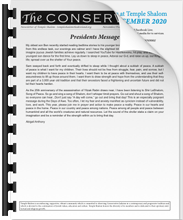
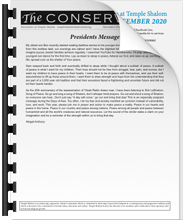
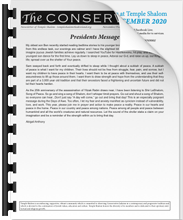
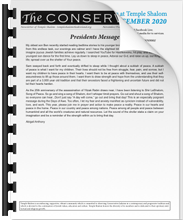
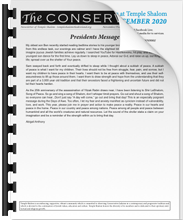
 RSS Feed
RSS Feed